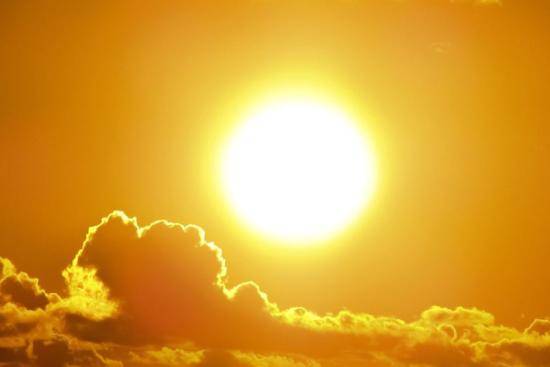Extremely high temperatures bring a real risk to health. This is particularly the case with children, older people, those with an underlying medical condition, and the homeless.

For rough sleepers, extreme hot weather can be just as dangerous as extreme cold
We're determined to end rough sleeping in H&F, but the reality is that this extreme weather can cause health problems for those forced to stay out in it 24/7.
If you are concerned about someone who you think is sleeping rough, you can log their location using the StreetLink website.
The information is passed to an H&F Council-funded outreach team – run by charity St Mungo's – who will then know how to find them.
A small amount of effort can make a massive difference.
Stay safe in extreme hot weather
Everybody needs to take sensible precautions to ensure the summer is one to be remembered for the right reasons.
We've put together the below guide with tips on how to stay safe, and how you can look out for those who may need help.
Stay out of the heat
- Keep out of the sun between 11am and 3pm.
- If you have to go out in the heat, walk in the shade, apply sunscreen and wear a hat and light scarf.
- Avoid extreme physical exertion.
- Wear light, loose-fitting cotton clothes.
Cool Spaces
If you're looking for a cool indoor space or somewhere shady to spend a few hours outside, there's a list of London's Cool Spaces. You can even suggest locations to include.
Cool Spaces in H&F include Westfield London in White City and Livat shopping mall in Hammersmith (former Kings Mall).
Cool yourself down
- Have plenty of cold drinks (you can find your nearest water fountain at the Refill London website, and avoid excess alcohol, caffeine and hot drinks).
- Eat cold foods, particularly salads and fruit with a high water content.
- Take a cool shower, bath or body wash.
- Sprinkle water over the skin or clothing, or keep a damp cloth on the back of your neck.
What seems like a cooling dip can be a risk to life
Rivers and lakes may seem like a great place to cool off. But underlying currents, and unseen obstacles beneath the surface, can make them a danger to life for even the strongest swimmer.
Keep your environment cool
- Keeping your living space cool is especially important for infants, the elderly or those with chronic health conditions or who can't look after themselves.
- Place a thermometer in your main living room and bedroom to keep a check on the temperature.
- Keep windows that are exposed to the sun closed during the day, and open windows at night when the temperature has dropped.
- Close curtains that receive morning or afternoon sun, however, care should be taken with metal blinds and dark curtains, as these can absorb heat – consider replacing or putting reflective material in-between them and the window space.
- Turn off non-essential lights and electrical equipment – they generate heat.
- Keep indoor plants and bowls of water in the house as evaporation helps cool the air.
- If possible, move into a cooler room, especially for sleeping.
- Electric fans may provide some relief, if temperatures are below 35C.
Look out for others
- Keep an eye on isolated, elderly, ill or very young people and make sure they are able to keep cool.
- Ensure that babies, children or elderly people are not left alone in stationary cars.
- Check on elderly or sick neighbours, family or friends every day during a heatwave.
- Be alert and call a doctor or social services if someone is unwell or further help is needed If you have a health problem.
- Keep medicines below 25c or in the refrigerator (read the storage instructions on the packaging).
- Seek medical advice if you are suffering from a chronic medical condition or taking multiple medications.
What to do if you or others feel unwell
- Try to get help if you feel dizzy, weak, anxious or have intense thirst and headache; move to a cool place as soon as possible and measure your body temperature.
- Drink some water or fruit juice to rehydrate.
- Rest immediately in a cool place if you have painful muscular spasms (particularly in the legs, arms or abdomen, in many cases after sustained exercise during very hot weather), and drink oral rehydration solutions containing electrolytes.
- Medical attention is needed if heat cramps last more than one hour.
- Consult your doctor if you feel unusual symptoms or if symptoms persist.
Further support
Find more advice on keeping cool inside and outside through the Met Office.
Or visit the NHS website for more advice on how to cope in the hot weather.